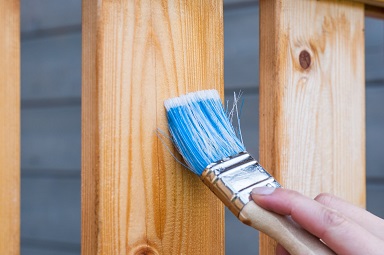 NATIONAL REPORT—Greening of the maintenance cycle is an important step in ensuring the carbon neutrality and eco-progressiveness of any lodging sector business. The importance of retrofitting and enhancing the green credentials of any maintenance process are highlighted by the EPA as one of the key challenges in the climate change goals, not only of the United States, but any country with an active tourism sector. However, with maintenance often demanding the use of heavy machinery and chemicals and solvents in their day-to-day processes, this can seem like a tall order. The good news is that there are plenty of options to achieve truly green maintenance.
NATIONAL REPORT—Greening of the maintenance cycle is an important step in ensuring the carbon neutrality and eco-progressiveness of any lodging sector business. The importance of retrofitting and enhancing the green credentials of any maintenance process are highlighted by the EPA as one of the key challenges in the climate change goals, not only of the United States, but any country with an active tourism sector. However, with maintenance often demanding the use of heavy machinery and chemicals and solvents in their day-to-day processes, this can seem like a tall order. The good news is that there are plenty of options to achieve truly green maintenance.
The Hard Processes
The most difficult area to truly assess is likely the technical maintenance businesses require. That can include exterior work, like the cleaning of gutters, structural repairs and such, or internal work, like plumbing and electrical maintenance. Plumbing work in particular can have an impact on the environment. A study published by Sustainable Cities and Society found that the materials used in plumbing, such as the plastics PVC and HDPE and metal ductile iron (DI), have a long-term impact on waterways and the environment through breakdown. In recent years, extreme weather has helped plumbers to reshape how they work. When looking to rectify damage from storms and blizzards in the Midwest, Plumbers Indianapolis and Chicago have had the chance to re-assess water systems and rebuild with environmentally friendly systems. In short, you can most certainly find green ways to conduct physical maintenance. The same is true for those processes that often create chemical runoff.
Reducing Chemical Usage
Lodgings rely on their outward appearance to a significant degree. Depending on the climate, maintenance and painting can be a biannual affair, if not more frequent. Paints are, of course, often bad for the environment: they contain high levels of chemicals and compounds that, when introduced to water systems, can be damaging for the quality of water and for organisms. AC reports that research into high-level paints is underway, and particularly promising research in the marine sector, where ship hulls need special “antifouling” paint to ensure safe operation, is now making such products available in the commercial sector. Identifying and prioritizing environmentally safe paints is a key way to make a difference.
Energy Consumption
Of course, underpinning all of the impacts that maintenance has on the planet is energy consumption. Landscaping tools often demand the use of petrol motors, and there can be significant energy costs associated with running the tools with sufficient power to complete tough manual tasks. Increasingly, electric motors are providing more than enough strength to complete these tasks. This is where businesses can step in. Providing the requisite electricity at your site, and then either seeking compensation or allowing the expenditure as a gratuity, means you can control what your maintenance contractors use in terms of electricity—ensuring renewable-only power is used.
Bringing these principles together when purchasing maintenance contracts will allow you to ensure that another area of your business matches your environmental goals. Maintenance can be costly on the natural world—making sure it’s not is another step to all-in greening.






